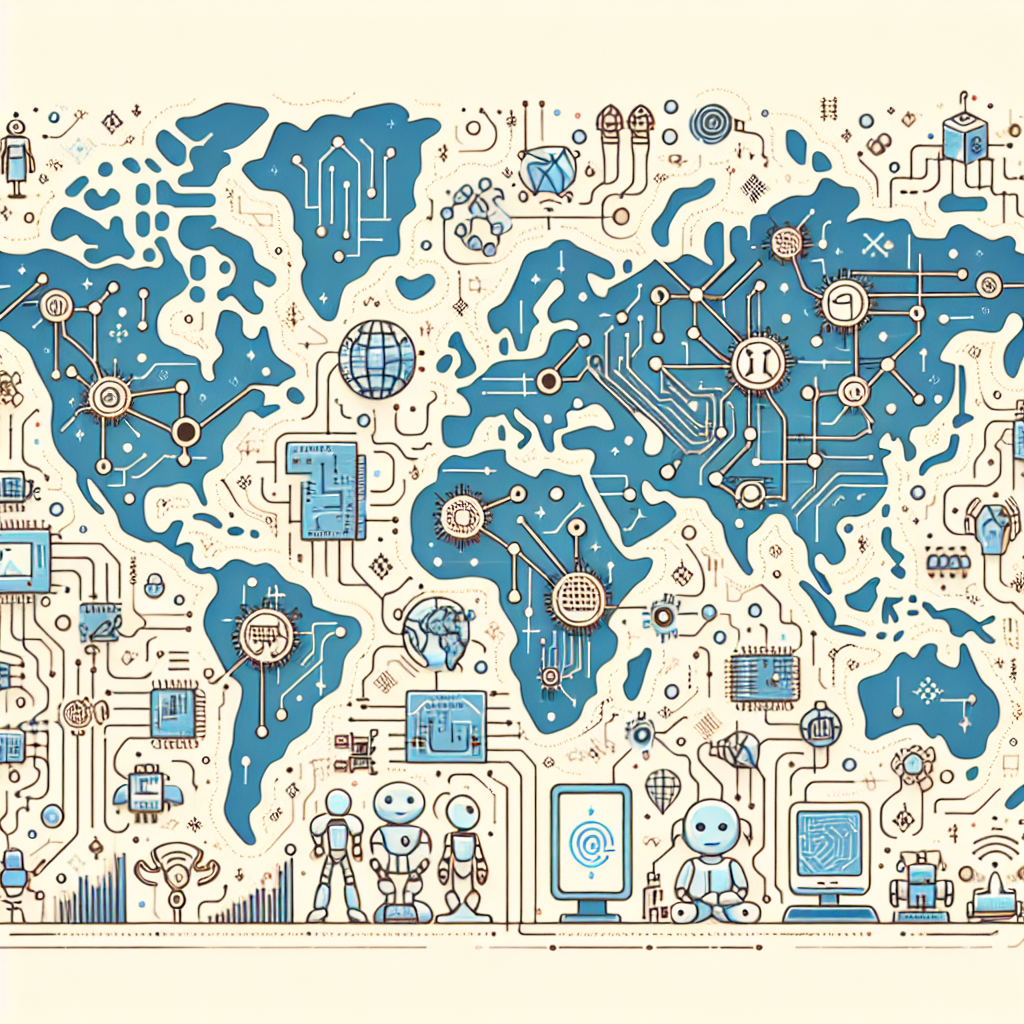The democratization of AI: A global perspective
Artificial Intelligence (AI) has quickly become one of the most transformative technologies of the 21st century. From virtual assistants like Siri and Alexa to self-driving cars and personalized recommendations on streaming services, AI is increasingly becoming a part of our daily lives. However, the development and deployment of AI technologies have largely been concentrated in the hands of a few tech giants and research institutions, leading to concerns about the democratization of AI.
The democratization of AI refers to the process of making AI technologies more accessible, affordable, and understandable to a wider range of users. This includes individuals, small businesses, and governments in both developed and developing countries. By making AI more democratic, we can ensure that the benefits of this transformative technology are more widely distributed and that marginalized communities are not left behind.
Global perspective on the democratization of AI
The democratization of AI is a global issue that requires collaboration across borders and sectors. While countries like the United States and China have made significant investments in AI research and development, other countries are also making strides in democratizing AI technologies. For example, countries in Europe are focusing on ethical AI and data privacy regulations, while countries in Africa are leveraging AI to address pressing social and economic challenges.
One of the key challenges in democratizing AI globally is the digital divide. Many developing countries lack the infrastructure and resources needed to develop and deploy AI technologies. This can exacerbate existing inequalities and limit the potential benefits of AI for these countries. To address this challenge, stakeholders must work together to bridge the digital divide and ensure that all countries have the capacity to participate in the AI revolution.
Another challenge is the lack of diversity in the AI workforce. Women and minorities are significantly underrepresented in the field of AI, which can lead to biased algorithms and discriminatory outcomes. To address this issue, efforts must be made to increase diversity and inclusion in the AI workforce and ensure that AI technologies are developed in a way that is ethical and equitable.
Frequently Asked Questions (FAQs)
Q: What are some examples of AI technologies that are being democratized globally?
A: Some examples of AI technologies that are being democratized globally include chatbots, image recognition software, and predictive analytics tools. These technologies are being used by businesses, governments, and individuals to automate tasks, improve decision-making, and enhance customer experiences.
Q: How can individuals and small businesses benefit from the democratization of AI?
A: Individuals and small businesses can benefit from the democratization of AI by using AI technologies to automate repetitive tasks, analyze data, and improve decision-making. For example, AI-powered chatbots can help small businesses provide better customer service, while predictive analytics tools can help individuals make more informed financial decisions.
Q: What are some challenges to the democratization of AI?
A: Some challenges to the democratization of AI include the digital divide, lack of diversity in the AI workforce, and ethical concerns. Addressing these challenges requires collaboration across sectors and countries to ensure that AI technologies are developed and deployed in a way that is inclusive, ethical, and equitable.
Q: How can governments help democratize AI?
A: Governments can help democratize AI by investing in AI research and development, creating regulations and policies to ensure ethical AI deployment, and promoting diversity and inclusion in the AI workforce. By working with stakeholders in the public and private sectors, governments can help ensure that AI technologies benefit all members of society.
Q: What is the role of education in the democratization of AI?
A: Education plays a crucial role in the democratization of AI by equipping individuals with the skills and knowledge needed to work with AI technologies. By incorporating AI into school curricula, offering training programs for professionals, and promoting lifelong learning, we can ensure that everyone has the opportunity to participate in the AI revolution.
In conclusion, the democratization of AI is a complex and multifaceted issue that requires collaboration across sectors and countries. By making AI technologies more accessible, affordable, and understandable to a wider range of users, we can ensure that the benefits of AI are more widely distributed and that marginalized communities are not left behind. Through education, regulation, and diversity efforts, we can work towards a more inclusive and equitable AI future.

